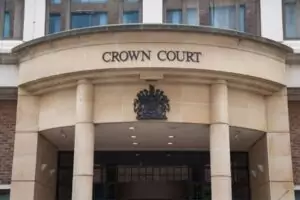Inheritance tax is changing in 2026
What farming families and business owners need to know If you own a farm,...- 11 February 2026
Posted: 23 May 2025
With the Crown Court backlog at an all time high, Sir Brian Leveson has recommended the introduction of intermediate courts, but will this be the best use of already limited time and resources?

The Crown Court backlog reached an ultimate high in December 2024 when there were 74,651 cases that were outstanding. This has an impact on all parties involved in proceedings as cases are being prolonged, some complainants deciding to drop their case as it is more draining to have an open case for years.
In November 2024, the Ministry of Justice increased the sentencing powers for the Magistrates Court. This now means that the magistrates court can impose a custodial sentence of 12 months, rather than 6 months. The hope is to only send the most serious and complex cases up to the Crown Court.
On the 6th of December 2024, the was an increase in finding of £24 million for legal aid solicitors who work in police stations and youth courts. Also in December 2024, the government announced an additional £92 million per year for legal aid solicitors to try and help them with the financial challenges that they face.
In March 2025, have announced that the Crown Court sitting days will be increased to 110,00 for the financial year 2025/26 which is 1,500 more than the previous year and will be the highest allocation yet.
16 nightingale courtrooms across 7 venues continue to hear cases, in an aim to provide additional capacity.
Notwithstanding these efforts, the backlog has not been reduced, therefore further measures need to take place.
Despite all of the changes so far, Sir Leveson has recommended the intermediate courts as a more long-term solution.
An intermediate court is a court where cases which are too serious for the magistrate’s court, but not as serious as the Crown court, can be heard before a professional judge who sits with two lay justices. This does not need to involve new courts being set up but could rather be seen as an upper division of the magistrate’s court.
It is argued by some that an intermediate court will not work as duty solicitors are already rare, so adding a third tier to the court, this will cause them to struggle to split their time and will stretch their resources further.
Some have also argued that the setting up of these courts would require a great amount of time and resources which would be better used if invested into the existing court system for improvements.
The intermediate courts would also remove the right to trial by jury which the bar council have said is not the solution that is desired.
Overall, the intermediate court system may not be the most ideal solution for the backlog crisis.
If you require representation at Court, please contact our Criminal Law team at our Braintree 01376 559690, Ipswich 01473 226577 or Benfleet 01268 792994 office. We are available 24 hours a day, 7 days a week.
- 11 February 2026
- 09 February 2026
- 07 February 2026